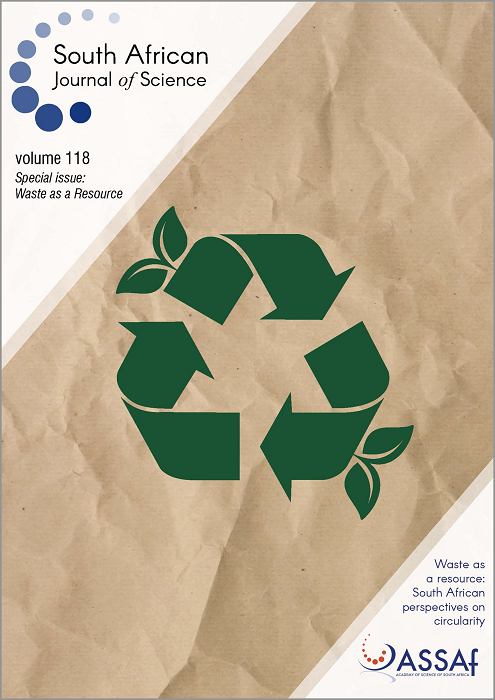Barriers to recycling e-waste within a changing legal environment in South Africa
DOI:
https://doi.org/10.17159/sajs.2022/12564Keywords:
electronic waste, legal framework, secondary resource, recycling, circular e-waste economy, endprocessingAbstract
Electronic waste (e-waste) recycling presents an opportunity to reclaim materials from a secondary resource and to create jobs and other economic opportunities. E-waste consists of various materials such as metals, plastics, glass, and other chemical substances. Some of these materials are hazardous if processed or disposed of improperly. Therefore, e-waste is classified as hazardous in South African law up until the hazardous components are removed. With the appropriate infrastructure and technology, a large portion of materials contained in e-waste can be reclaimed, and any adverse impacts of irresponsible management prevented. The private sector has played a proactive role in shaping the South African waste economy, and the government is taking strides to draw up enabling regulatory frameworks. Through a literature review and stakeholder engagements, this paper unpacks the organisation of the South African e-waste recycling industry. We consider whether the legal environment drives a common vision for a circular e-waste economy and probe the barriers to e-waste recycling across the value chain. The findings indicate that the development of the e-waste recycling sector in South Africa is dependent on a robust collection network and the enabling of local end-processing, refining, and manufacturing capacity. The availability and quality of input material and the development of local refining and manufacturing capacity are co-dependent and should be addressed simultaneously.
Significance:
- E-waste recycling is an emerging industry in South Africa and the enablers and constraints for the development of this industry are still being explored.
- The legislative environment with regard to e-waste recycling is evolving and needs to be continuously reviewed to assess its ability to enable/activate the development of the sector.
- Local end-processing is currently limited to very small volumes of selected fractions of e-waste. The potential to activate upper levels of the e-waste value chain, such as end-processing, is important to the development of the sector.
Published
Issue
Section
License

All articles are published under a Creative Commons Attribution 4.0 International Licence
Copyright is retained by the authors. Readers are welcome to reproduce, share and adapt the content without permission provided the source is attributed.
Disclaimer: The publisher and editors accept no responsibility for statements made by the authors
How to Cite
- Abstract 1475
- PDF 2128
- EPUB 282
- XML 350
Funding data
-
Department of Science and Innovation, South Africa
-
National Research Foundation
Grant numbers 64829;128149












.png)